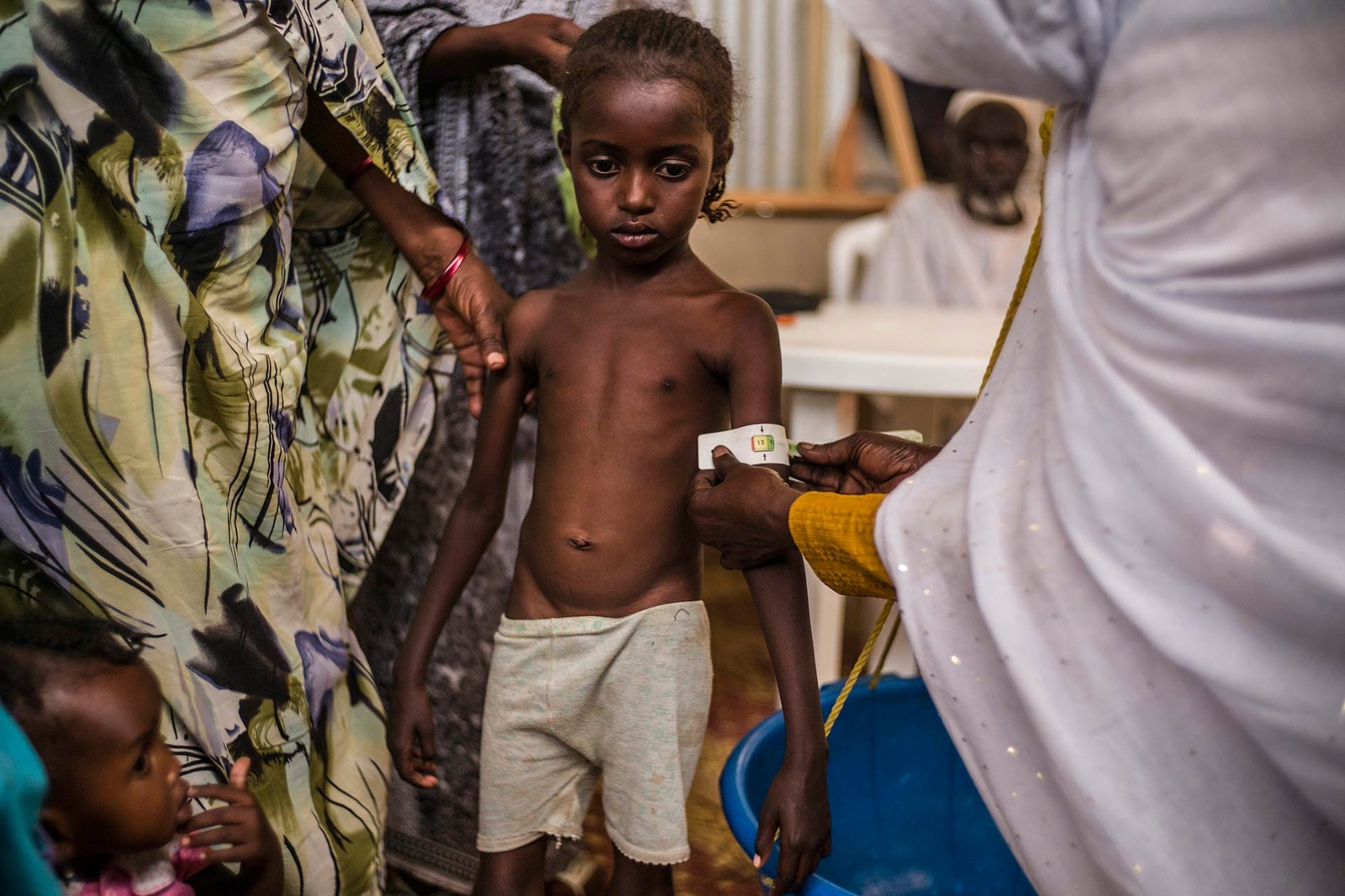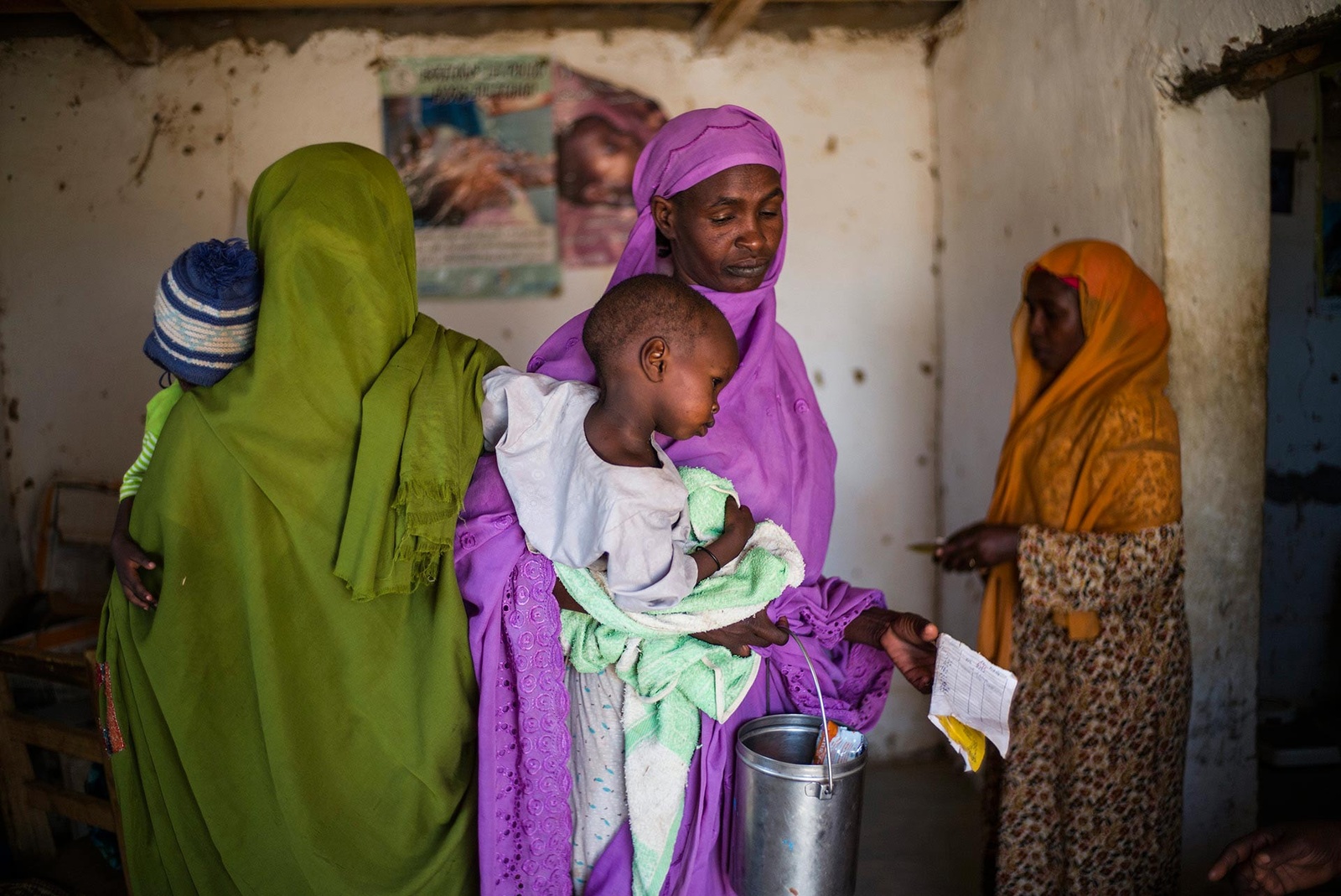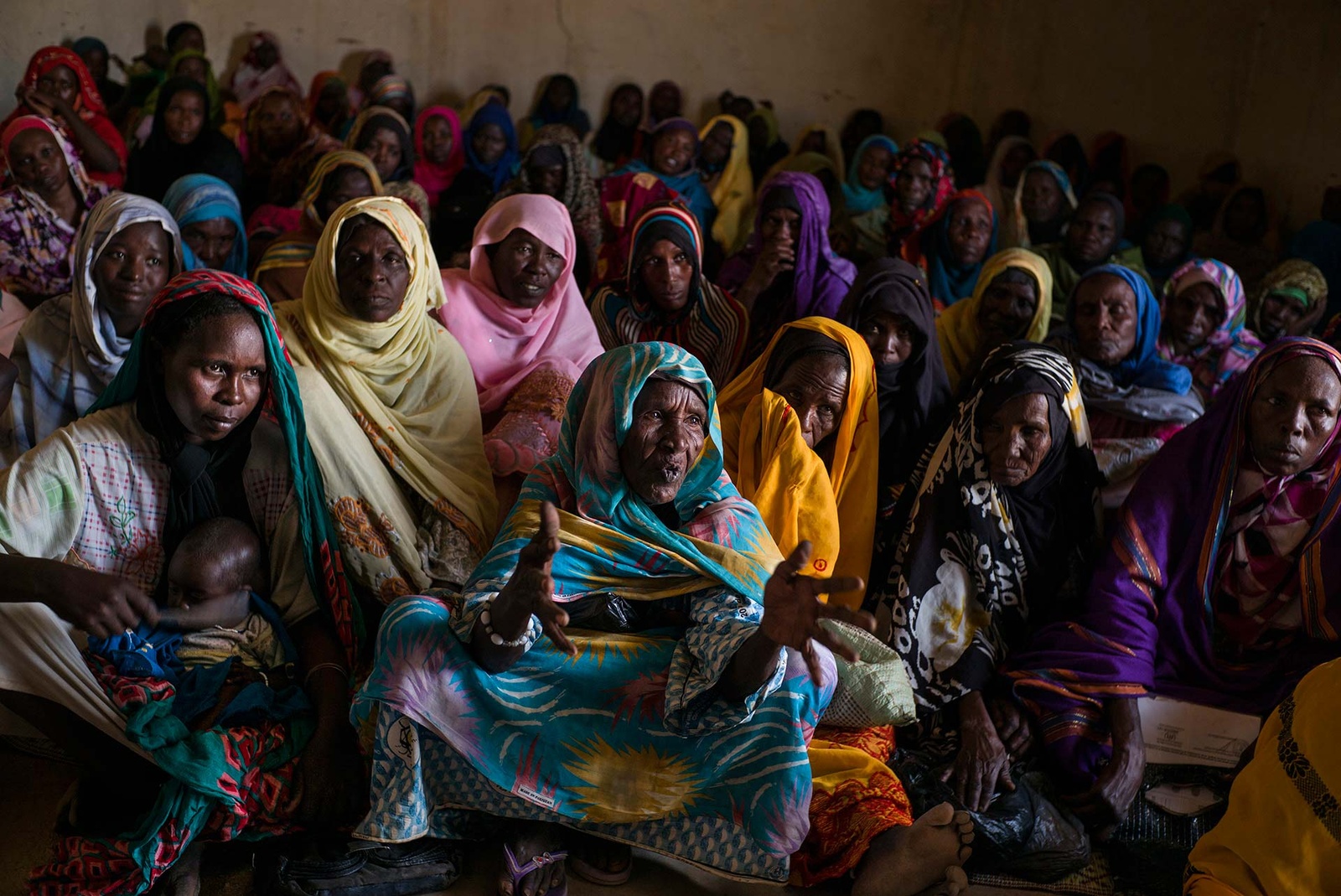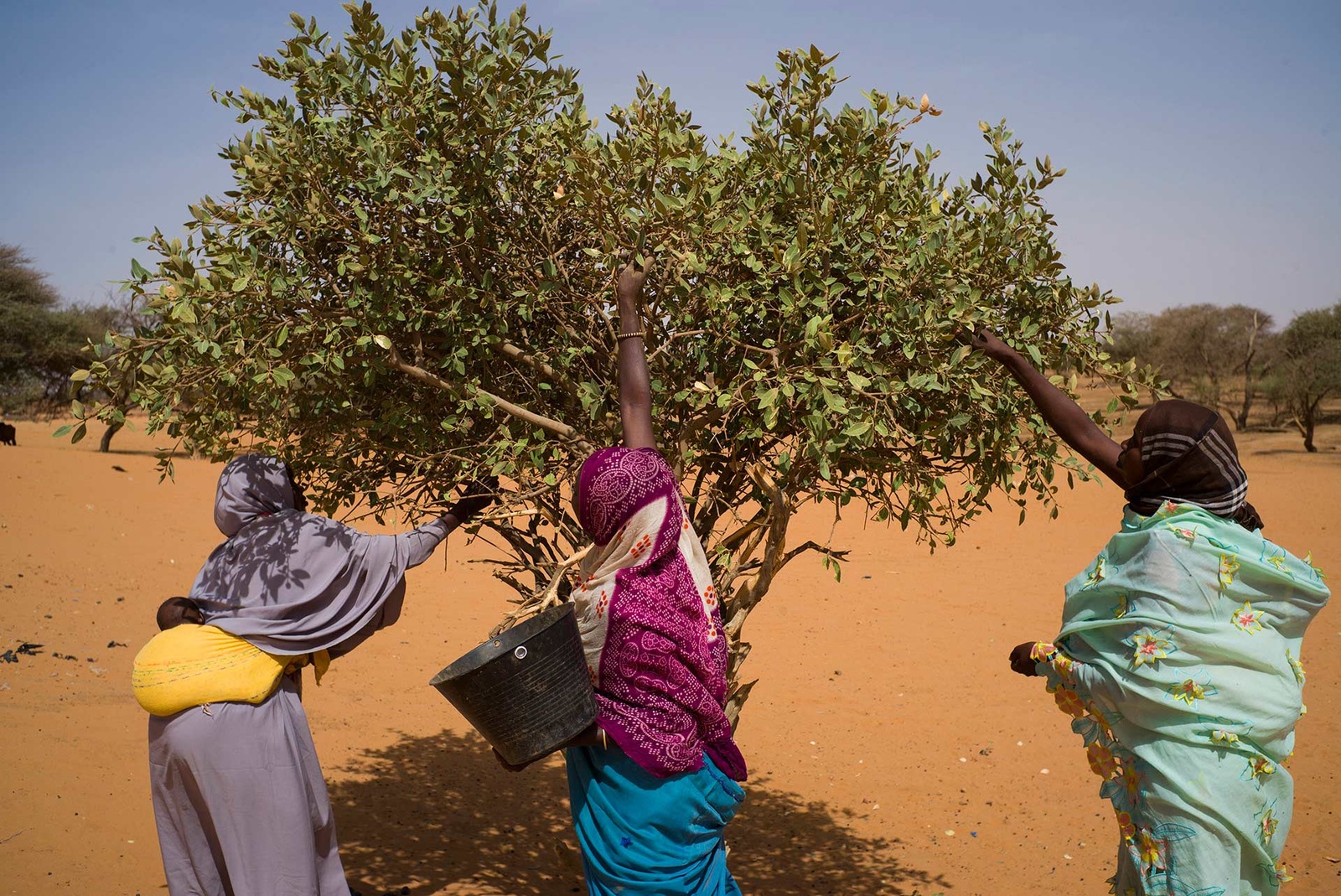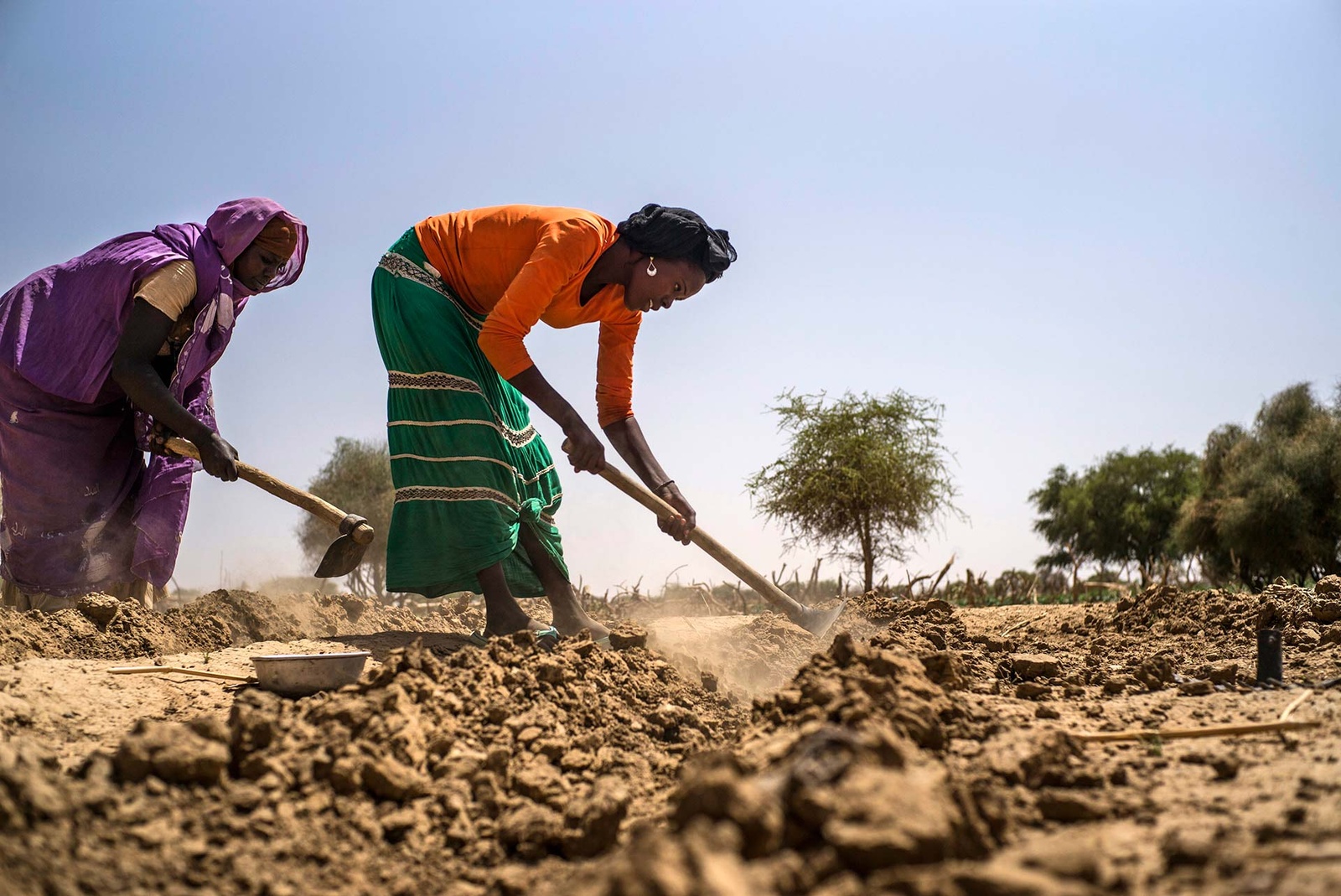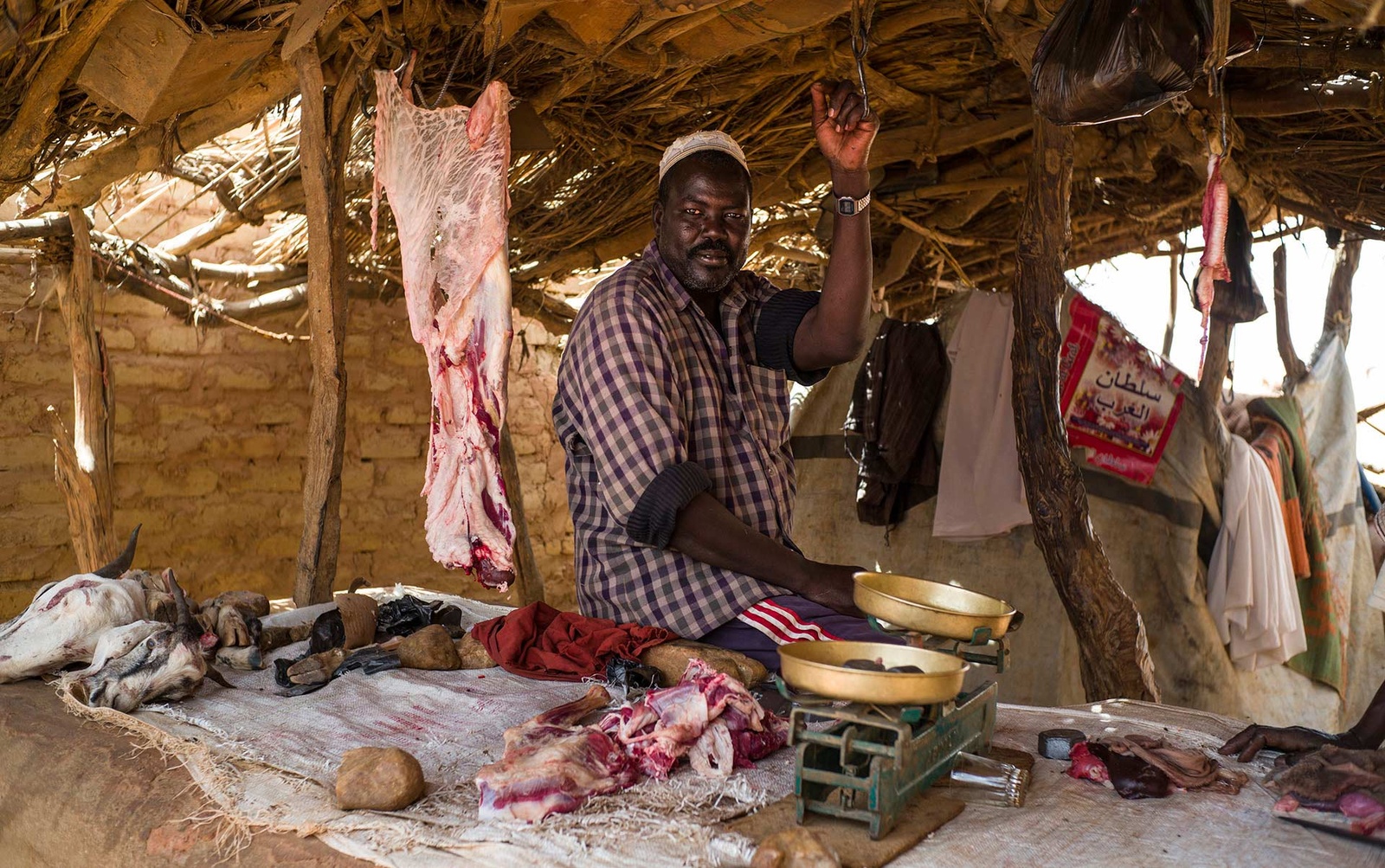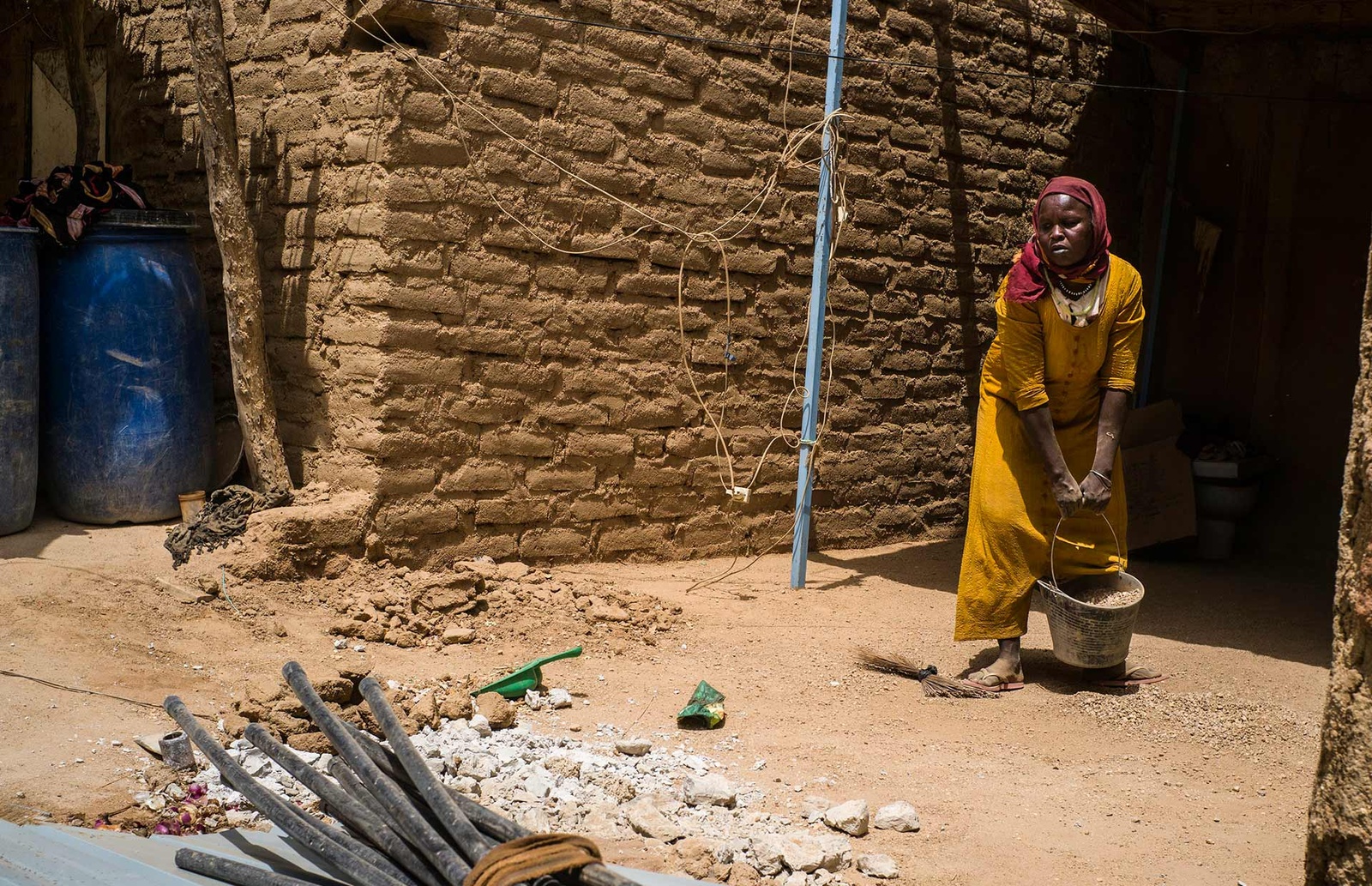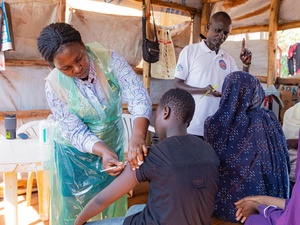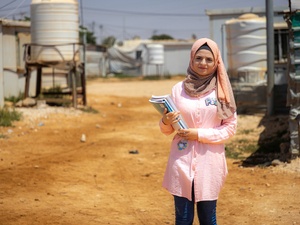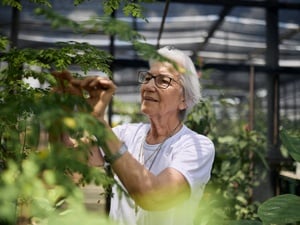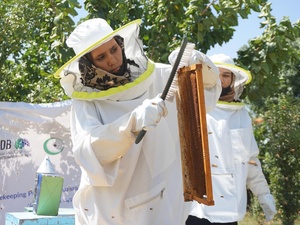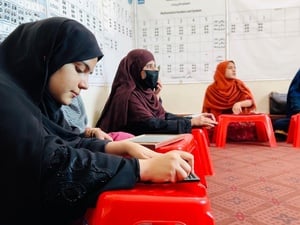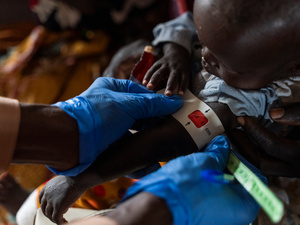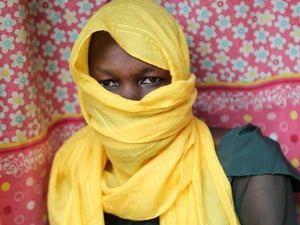A risky quest for food

A risky quest for food
IRIBA, Chad – As the sun sets over this remote town in eastern Chad, dozens of Sudanese refugee women and girls quietly gather beneath a huge tree where they will spend the night.
They find safety in numbers, having left nearby Iridimi refugee camp in search of work that will enable them to buy food for their families. Since the start of this year, over 300,000 refugees in Chad have been struggling to cope with a 60 per cent reduction in daily food rations caused by a funding shortfall for the World Food Programme (WFP).
I've come here to see how they are getting by. The women and girls take any job they can get – cleaning houses, doing laundry, fetching water and firewood, doing construction work. Each night, they gather again beneath the tree, pool their meagre resources for a communal meal and go to sleep on the hard ground. And each morning, they set out once again to search the dusty streets of Iriba for work.
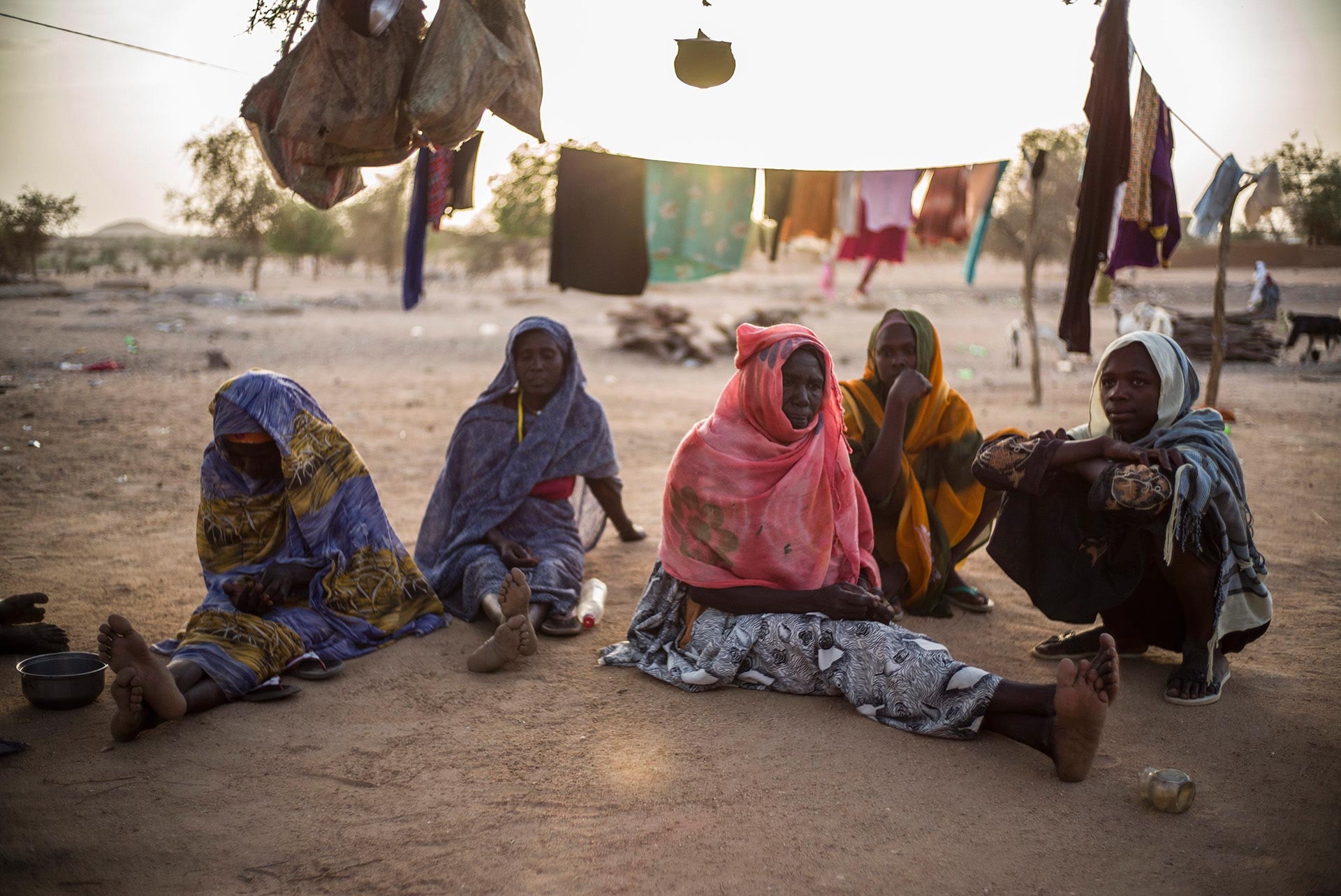
Some of the 50 Sudanese women who sleep under a tree after looking for work in Iriba to make up for ration cuts.
"We are really in need of money, that's why we came here to work," says a 16-year-old girl I'll call Fatima. "We walk through the town, people call us for work. We prepare clay for walls, we make bricks and we build walls. Sometimes, we are asked to destroy sheds and build new ones. We go to the bush to fetch gravel to make backyards look nice. We also cut wood. We pound okra and dried tomatoes. We wash clothes, and we… go to the market to buy things. We also fetch water."
For domestic work, Fatima earns between two and ten Sudanese pounds a day – less than US$ 1.75. Construction work pays better: up to 20 Sudanese pounds, or US$ 3.50, per day. But even when they do find work, the women and girls often find themselves being exploited or cheated by their employers.
"Some of the women we work for are mean," says Fatima. "They send us away after we worked without paying us." For two days in a row, she has worked as a servant for a local family but has not been paid. Now she had no money to contribute to the night's communal meal beneath the tree, and will have to depend on the generosity of the other refugee women for her dinner.
In recent months, the 300,000 refugees in Chad who are dependent on WFP food have seen their daily rations reduced from 2,100 kilocalories per person per day to around 850 kilocalories. Over 240,000 of them are refugees who fled the Darfur region of Sudan and are now living in 13 remote camps stretched along hundreds of kilometres of desolate border in eastern Chad.
Unlike the other 60,000, who escaped fighting in Central African Republic and are staying in camps in Chad's more fertile south, the Sudanese refugees living in the dry, desert camps of the east are largely unable to grow their own crops to make up some of the food shortfall. For the most part, they remain entirely dependent on the flow of humanitarian assistance, now slowed to a trickle.
The refugee women from Iridimi, Touloum and Am Nabak refugee camps near Iriba worry about the consequences of the current food shortage. They say the monthly food rations being distributed in the camps don't even last a week. They are struggling to feed their families and pay school fees for their children.
"Some women are not able to breastfeed; they have no more milk. We are calling for help."
"We don't know what to do," says Khatr Maghiba Adam, president of the women's refugee committee in Iridimi camp. "Some women find their way, but others, such as those with children whose husbands are not here, suffer. Some women are not able to breastfeed; they have no more milk. Women leave the camp to work in Iriba and leave their children behind. We are calling for help. We are asking whether we could be transferred to another area where we could do agriculture."
UNHCR and WFP have been warning the international community for months about the dramatic impact of the food shortages on refugees, most of whom were living hand-to-mouth even before the cuts.
Another consequence is absenteeism in refugee camp schools as children leave to go in search of work in nearby towns. Many end up carrying goods for local traders on market days. "Today, only 26 children out of a 59 attended class," says Abdel Alim Fadoul, a teacher in Iridimi's primary school. "The others are working at the weekly market in Iriba. If the situation continues like that, soon there will be no children in the schools."
Agriculture is only a limited option for the refugees in the arid east of Chad. The soil is dry, rain is scarce and access to water is a challenge. To augment their diet, and compensate for a lack of grain, some refugees have resorted to harvesting toxic wild berries, which must be soaked for a week and then pounded into porridge. The last time people ate these wild berries in eastern Chad was during the famine in the 1980s.
Desperate to feed their families, some women are resorting to prostitution.
"There are girls who stay with us but disappear at night," Fatima says. "They receive phone calls and they leave. They leave to meet with men and they receive money. They make much more money than us. There are other girls who see these girls and follow them and agree to do the same. They leave when it is dark and come back before the morning prayer. One even gave birth."
"We are trapped by the climate and the environment. Otherwise, like other refugees, we would have developed solutions to take care of ourselves."
Refugees are also looking at other possibilities for earning money, like baking bread or making soap. But the options are limited.
"We have been here a long time, but we have been unable to be self-sufficient," says Zacharia Ismael Nahar, a Sudanese refugee in Touloum camp. "It's a big problem we have in our hearts, but we are trapped by the climate and the environment. Otherwise, like other refugees, we would have developed solutions to take care of ourselves. But here, because of the climate and the environment we are dependent on humanitarian assistance."


